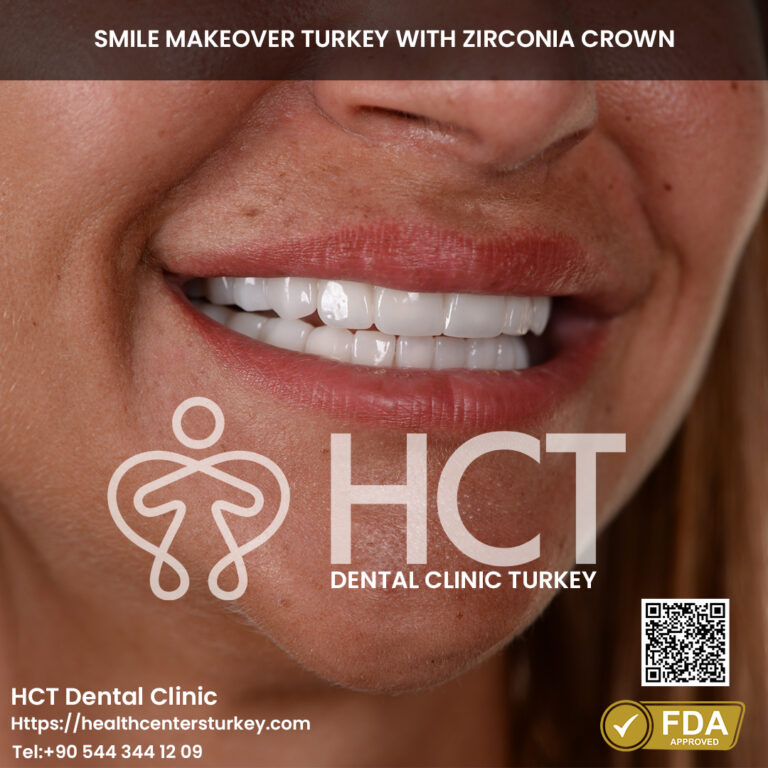Find Affordable Dental Care Options involving Implants and More in Turkey
Find Affordable Dental Care Options involving Implants and More in Turkey
Blog Article
Family-friendly Dental Practices in Turkey
Dental implants have become a popular answer for these seeking to replace missing teeth. Understanding how these implants can have an effect on adjacent teeth is essential for anybody contemplating this process, as properly as for dentists and specialists concerned in dental care.

One important facet is that dental implants are designed to be anchored into the jawbone, which suggests they're unbiased of adjacent teeth. Unlike dental bridges, which often require the alteration of neighboring teeth, implants can fill the hole with out compromising the health or structure of those surrounding teeth.
This independence helps preserve the integrity of adjacent teeth. When a tooth is lost, there could be a natural tendency for neighboring teeth to tilt or shift into the empty house. Such movement can lead to misalignment, which might affect chunk and general oral health. By placing an implant, you successfully prevent this potential shift, promoting higher alignment in the long term.
Explore Treatment Alternatives for Implant Procedures
Additionally, dental implants assist maintain bone density within the jaw. A natural tooth root provides stimulation to the encircling bone, maintaining it wholesome and powerful. When a tooth is missing, the bone can begin to deteriorate because of lack of stimulation. With a dental implant mimicking a natural root, bone loss can be minimized, which not directly benefits adjacent teeth by preserving the general structure of the dental arch.
While dental implants are advantageous, improper placement can impact neighboring teeth. If an implant is positioned too shut to another tooth, it might exert undue pressure on that tooth, resulting in discomfort or potential damage. Proper planning and imaging methods are important for avoiding such issues.
Comparative Costs for Dental Care in Turkey
Moreover, maintaining good oral hygiene is crucial after receiving an implant. If not properly cleaned, surrounding teeth may become susceptible to dental issues corresponding to decay or gum disease. This underscores the significance of diligent oral care following the procedure to make sure both implants and adjacent teeth stay wholesome.
Regular dental check-ups are also important for monitoring the health of surrounding teeth. Dentists can identify any shifts or potential problems early, permitting for well timed interventions. This proactive approach ensures that each the implant and adjacent teeth can coexist with out problems.
Extensive Dental Services for A Radiant Smile
Another consideration is the impact of implants on chew drive. When a single tooth is missing, the load of chewing may shift to adjacent teeth, probably resulting in wear or pressure. Implants restore proper chew dynamics by redistributing forces within the mouth, which might protect surrounding teeth from undue stress.
Some sufferers could increase considerations in regards to the appearance of dental implants. Well-placed implants can blend seamlessly with present teeth, bettering total aesthetics. In contrast, failing to exchange a missing tooth can result in aesthetic points, together with collapsing of facial structure and changes in smile dynamics.
It's additionally value discussing the psychological aspects of dental health. Experiencing tooth loss can adversely affect one’s self-esteem and willingness to interact socially. By restoring your smile with implants, you'll have the ability to positively influence not only your oral health but in addition your emotional well-being.
Long-term success of dental implants typically hinges on various elements, together with the affected person's health, maintenance habits, and the standard of the preliminary procedure. If adjacent teeth are healthy and properly cared for, the chances are excessive that they may proceed to thrive alongside the implants.
Uncover Top Dental Treatments in Turkey including Implants, Veneers, and More
In conclusion, dental implants play a vital function in not simply restoring individual smiles, but in preserving the health and structure of adjacent teeth. By preventing shifting, maintaining bone density, and redistributing chunk forces, implants can ensure that surrounding teeth remain in optimal condition. Proper placement, hygiene, and regular dental visits can further enhance the benefits of dental implants, leading to a healthier, more confident smile for years to come.
- Dental implants can help maintain the alignment of adjacent teeth by providing a stable anchor, stopping adjacent teeth from shifting into the hole left by a missing tooth.
- The presence of an implant could stimulate bone development within the jaw, serving to to protect the general structure and integrity of the adjacent teeth.
- Unlike conventional bridges, implants do not require alteration of surrounding teeth, thus preserving their power and anatomy.
- Implants can enhance the distribution of bite forces evenly across the dental arch, lowering the stress on neighboring teeth throughout chewing.
- A well-integrated dental implant can decrease the danger of bone loss in the area surrounding adjacent teeth, contributing to their long-term health and stability.
- The aesthetics of adjacent teeth can be improved due to the support supplied by implants, which might result in higher total cosmetic outcomes.
- With proper placement, dental implants can prevent gum recession around adjacent teeth by maintaining enough dental structure.
- Implants may help mitigate the risks of periodontal disease in close by teeth by promoting healthy gum tissue and providing a washable floor.
- Long-term success of dental implants can result in improved oral hygiene routines, which in turn benefits the health of surrounding teeth.
- The improved functional ability of an implant can encourage sufferers to chew more effectively, thus rising saliva manufacturing and aiding within the safety of adjacent dental tissues.undefinedHow do dental implants have an result on adjacent teeth?
What are dental implants and how do they work together with adjacent teeth?undefinedDental implants are artificial tooth roots which are surgically positioned into the jawbone. They present a stable basis for replacement teeth whereas ensuring minimal disruption to adjacent teeth, preserving their integrity and alignment. Secure A Perfect Smile with Affordable Treatments in Turkey.
Enhance Your Oral Health Care with Qualified Professionals in Turkey
Can dental implants trigger problems for nearby natural teeth?undefinedGenerally, dental implants don't hurt adjacent natural teeth. However, if the implant isn't positioned accurately or if there’s inadequate oral hygiene, it could lead to problems similar to adjacent tooth discover this decay or gum disease.

Will getting a dental implant change the way my adjacent teeth feel?undefinedMost sufferers report no change in the sensation of adjacent teeth after implant placement. However, it may take some time to regulate to the presence of the implant, much like how one might adapt to other dental restorations.
Can dental implants help preserve the health of adjacent teeth?undefinedYes, dental implants may help preserve the health of adjacent teeth by stopping bone loss that can occur after tooth loss. This preservation supports the alignment of close by teeth, decreasing the danger of shifting or misalignment.
Reveal Your Brightest Smile with Professional Dental Care in Turkey
Do I want to change adjacent teeth when getting an implant?undefinedTypically, adjacent teeth don't want alteration when putting an implant. This is certainly one of the benefits of dental implants over traditional bridges, which often require reshaping adjacent teeth for assist.
How does the therapeutic process of an implant affect close by teeth?undefinedThe therapeutic process involves osseointegration, the place the implant fuses with the jawbone. During this time, adjacent teeth remain unaffected and retain their function, although it’s essential to follow post-operative care recommendations. Reasonably Priced Teeth Brightening Treatments for a Radiant Smile.
Enhance Your Smile with Advanced Dental Solutions
Can dental implants lead to bone loss round adjacent teeth?undefinedIf dental implants are positioned properly and cared for adequately, they should not lead to bone loss around adjacent teeth. In truth, they can help stimulate bone development, combating the natural bone loss that always follows tooth extraction.
What precautions should I take to guard adjacent teeth after getting an implant?undefinedRoutine dental hygiene, including brushing and flossing, helpful site together with regular dental check-ups, is essential. Avoiding exhausting meals and following your dentist’s aftercare directions will also shield both the implant and adjacent teeth.
Is it frequent for adjacent teeth to shift after an implant is placed?undefinedIt's not typical for adjacent teeth to shift after an implant placement, especially when the implant is positioned correctly and maintained correctly. If there’s any movement, it might be due to different underlying issues that ought to be evaluated by a dental professional. Report this page